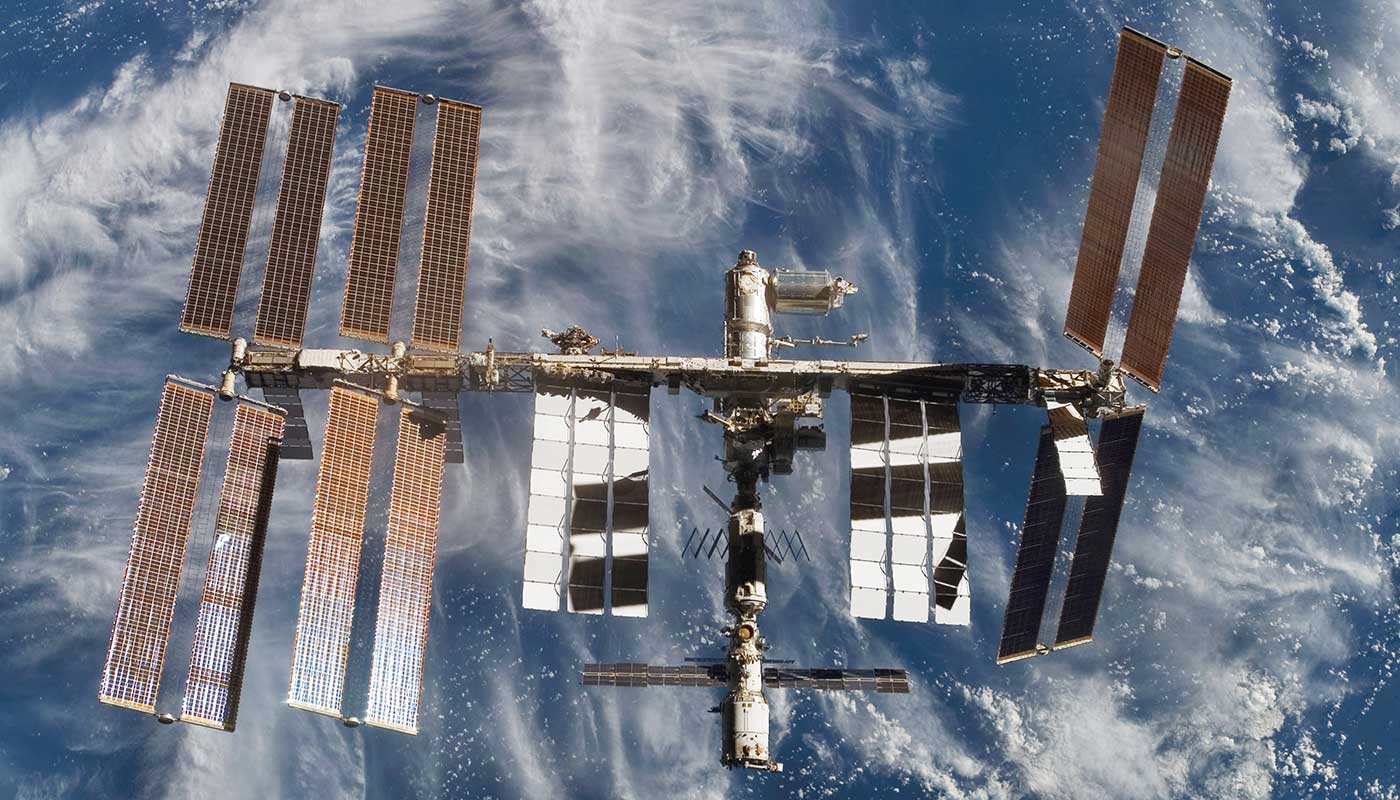What made the hole in the International Space Station?
Sealant and duct tape used to fix 2mm hole in a Russian section of the station

A free daily email with the biggest news stories of the day – and the best features from TheWeek.com
You are now subscribed
Your newsletter sign-up was successful
Astronauts aboard the International Space Station (ISS) have reportedly managed to plug a 2mm hole in the structure, after it was hit by space junk or a micrometeorite.
Mission flight controllers in Houston and Moscow were alerted to the situation when air pressure inside the ISS started to drop on Wednesday night.
The astronauts were instructed to try to find the leak, eventually tracing it to the Russian Soyuz vehicle that was used to carry three crewmembers to the ISS on 8 June.
The Week
Escape your echo chamber. Get the facts behind the news, plus analysis from multiple perspectives.

Sign up for The Week's Free Newsletters
From our morning news briefing to a weekly Good News Newsletter, get the best of The Week delivered directly to your inbox.
From our morning news briefing to a weekly Good News Newsletter, get the best of The Week delivered directly to your inbox.
German astronaut Alexander Gerst initially plugged the hole with his finger, before covering it with duct tape.
What caused the hole?
According to Russian space agency staff members “the incident may have been caused by an impacting micrometeoroid — a tiny piece of rock or other material”, Space.com says.
“Although the leak is small, if it had not been spotted the crew would have run out of air in 18 days,” the Daily Telegraph says.
A free daily email with the biggest news stories of the day – and the best features from TheWeek.com
The ISS crew are now working with engineers on the ground to decide if a “more robust” repair will be necessary, the BBC says.
Three ISS crewmembers are due to use that same Soyuz vehicle to return to Earth at the end of the year.
-
 Switzerland could vote to cap its population
Switzerland could vote to cap its populationUnder the Radar Swiss People’s Party proposes referendum on radical anti-immigration measure to limit residents to 10 million
-
 Political cartoons for February 15
Political cartoons for February 15Cartoons Sunday's political cartoons include political ventriloquism, Europe in the middle, and more
-
 The broken water companies failing England and Wales
The broken water companies failing England and WalesExplainer With rising bills, deteriorating river health and a lack of investment, regulators face an uphill battle to stabilise the industry
-
 Nasa’s new dark matter map
Nasa’s new dark matter mapUnder the Radar High-resolution images may help scientists understand the ‘gravitational scaffolding into which everything else falls and is built into galaxies’
-
 Moon dust has earthly elements thanks to a magnetic bridge
Moon dust has earthly elements thanks to a magnetic bridgeUnder the radar The substances could help supply a lunar base
-
 How Mars influences Earth’s climate
How Mars influences Earth’s climateThe explainer A pull in the right direction
-
 The ‘eclipse of the century’ is coming in 2027
The ‘eclipse of the century’ is coming in 2027Under the radar It will last for over 6 minutes
-
 NASA discovered ‘resilient’ microbes in its cleanrooms
NASA discovered ‘resilient’ microbes in its cleanroomsUnder the radar The bacteria could contaminate space
-
 Artemis II: back to the Moon
Artemis II: back to the MoonThe Explainer Four astronauts will soon be blasting off into deep space – the first to do so in half a century
-
 The mysterious origin of a lemon-shaped exoplanet
The mysterious origin of a lemon-shaped exoplanetUnder the radar It may be made from a former star
-
 The 5 biggest astronomy stories of 2025
The 5 biggest astronomy stories of 2025In the spotlight From moons, to comets, to pop stars in orbit